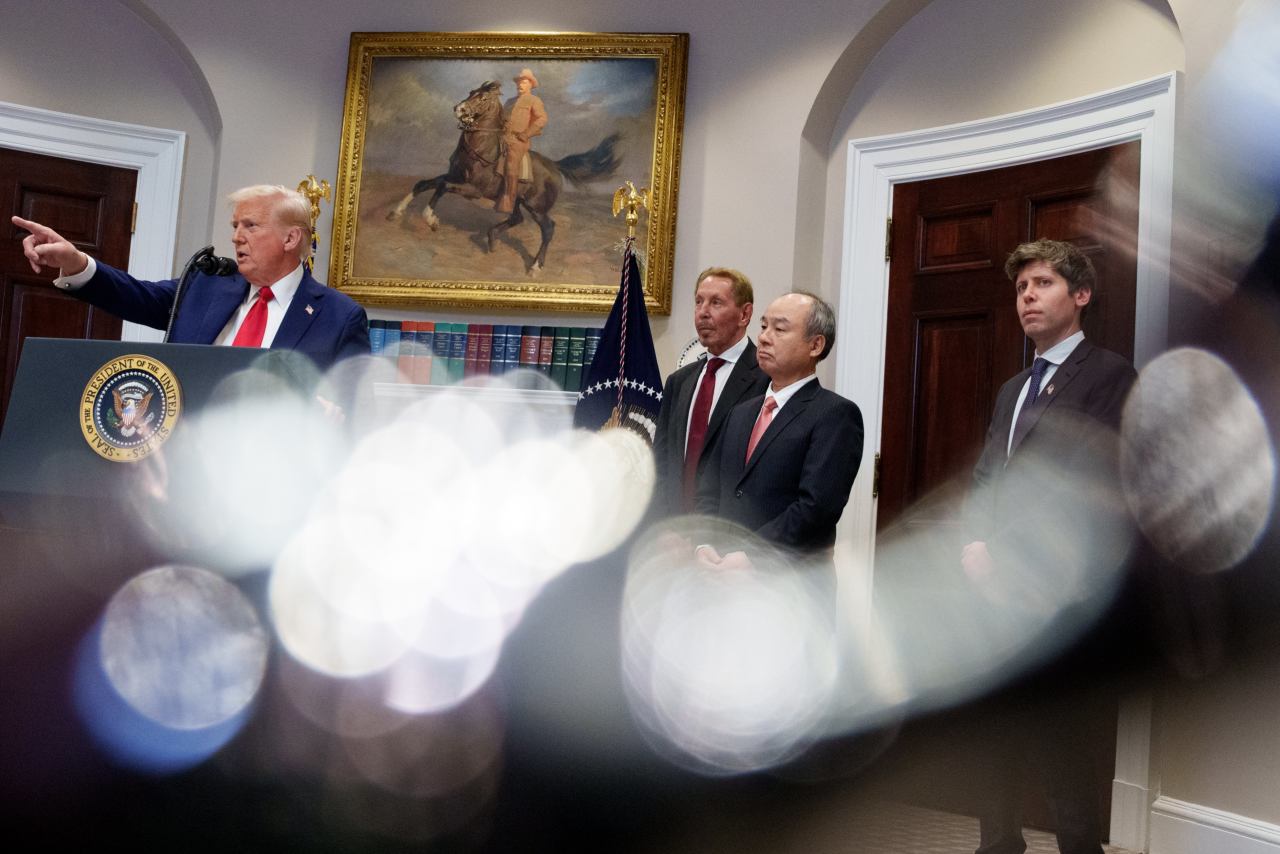SoftBank and OpenAI's $500B AI Venture Faces Setbacks

The Struggles of a $500 Billion AI Initiative
A monumental effort to boost the United States' artificial intelligence ambitions, initially announced with great fanfare at the White House, has faced significant challenges and delays. This ambitious project, known as Stargate, was meant to be a collaboration between SoftBank, led by Japanese billionaire Masayoshi Son, and OpenAI, headed by Sam Altman. However, the initiative has struggled to make progress, leading to a substantial reduction in its short-term goals.
Six months after the announcement, which saw Son and Altman standing alongside President Trump, the company responsible for executing the Stargate project has yet to finalize a single data center deal. The partnership between SoftBank and OpenAI has encountered disagreements over critical aspects such as the location of the data centers. Despite their initial pledge to invest $100 billion "immediately," the project now aims to build a small data center by the end of the year, likely in Ohio.
This slow start is a setback for Son, who has invested billions in various ventures but has been playing catch-up in the fast-evolving AI sector. SoftBank's recent commitment of $30 billion to OpenAI marks the largest-ever startup investment, a bold move that has required the company to take on new debt and sell assets. This investment was made alongside the plans for Stargate, positioning SoftBank in the physical infrastructure needed for AI development.
Meanwhile, Altman has continued to push forward without SoftBank, signing deals for data centers with other operators. Both companies claim that their partnership is progressing smoothly, with recent appearances at a SoftBank event and statements about their shared goal of building 10 gigawatts of data centers together. They emphasize that they are moving at a rapid pace to deliver the necessary AI infrastructure.
Despite the challenges, the development of data centers remains a national priority, with experts highlighting the massive effort required to construct these facilities and the power they consume. Altman’s OpenAI recently entered into a significant data-center deal with Oracle, involving payments of more than $30 billion annually starting within three years. This deal, which does not involve SoftBank, totals 4.5 gigawatts of capacity, enough to power about four million homes.
OpenAI’s efforts have also included a smaller deal with CoreWeave, resulting in nearly as much capacity as Stargate promised for this year. While Stargate has faced delays, Son has expressed continued confidence in OpenAI, indicating a desire to invest even more in the company.
Son has long sought a prominent role in the AI industry, investing heavily in various startups over the past decade. However, he missed out on key opportunities, including OpenAI, while facing setbacks with high-profile failures like WeWork and Katerra. His acquisition of chip company Arm has proven more successful, with significant gains in value.
In November, Son and Altman met in Tokyo to discuss an agreement, later presenting their plans to Trump aides. On the second day of Trump’s new administration, they stood beside him at the White House, vowing to spend $500 billion by 2029. “This is the beginning of our golden age,” Son declared.
The initial plan involved each company pledging $18 billion to get started, with the goal of developing data centers and leasing them to OpenAI. The two companies would jointly control the entity, with Son as chairman. SoftBank would handle financial details, while OpenAI would manage operations. Oracle and U.A.E. firm MGX were named as partners, though their roles remained unclear.
Recent complications have arisen over the extent of data center construction on sites tied to SB Energy, a SoftBank-backed energy developer. Altman has used the Stargate name for projects not funded by the partnership, with the trademark held by SoftBank.
Building data centers is a complex process requiring site selection, structural development, purchasing AI chips, sourcing electricity, and securing financing. Stargate hopes to use a new, lower-cost design for its first project in Ohio.
Training advanced AI models demands increasing amounts of data processing, prompting companies like OpenAI to commit to larger spending before their business models prove profitable. OpenAI’s $30-billion-a-year deal with Oracle is roughly three times the company’s projected annual revenue, highlighting the risks and bets involved in the AI industry.

Posting Komentar untuk "SoftBank and OpenAI's $500B AI Venture Faces Setbacks"
Posting Komentar